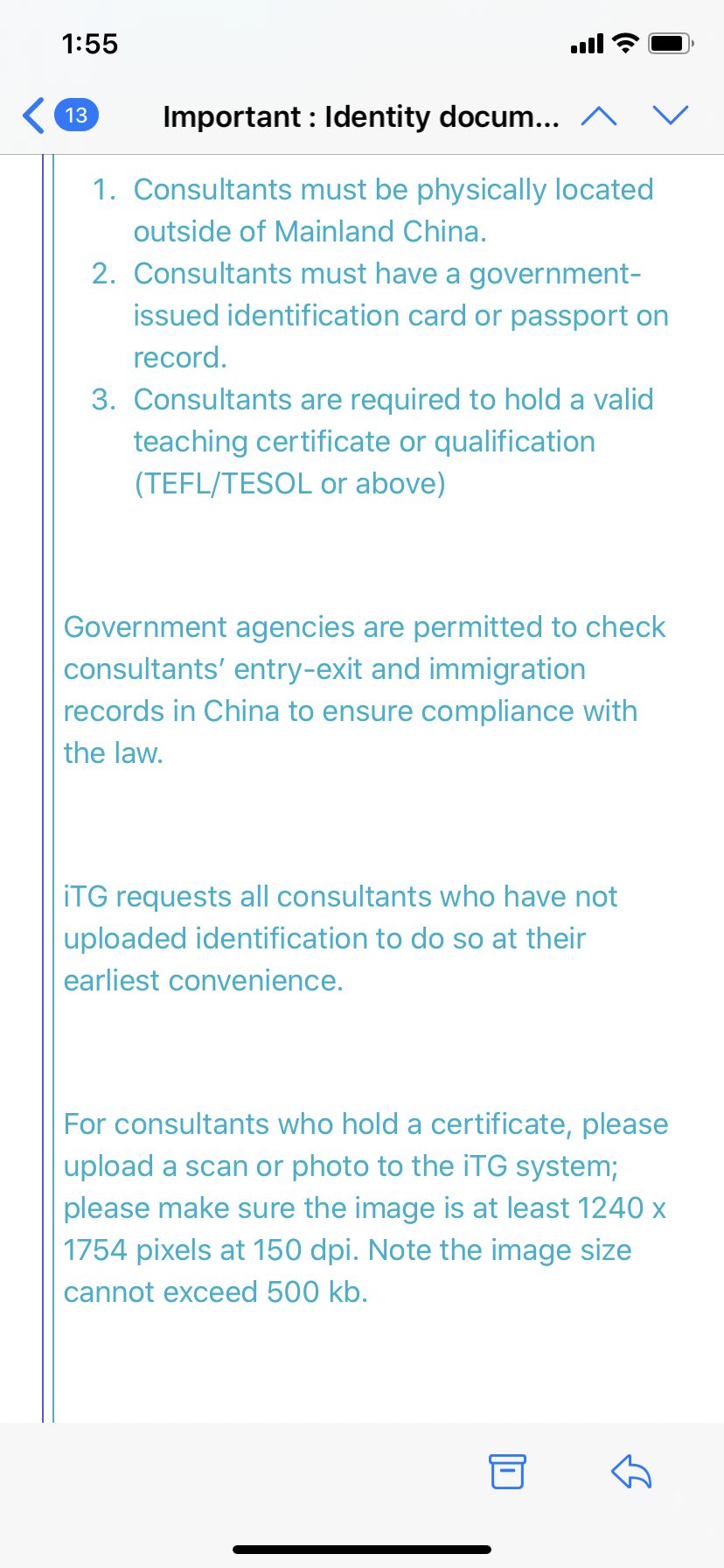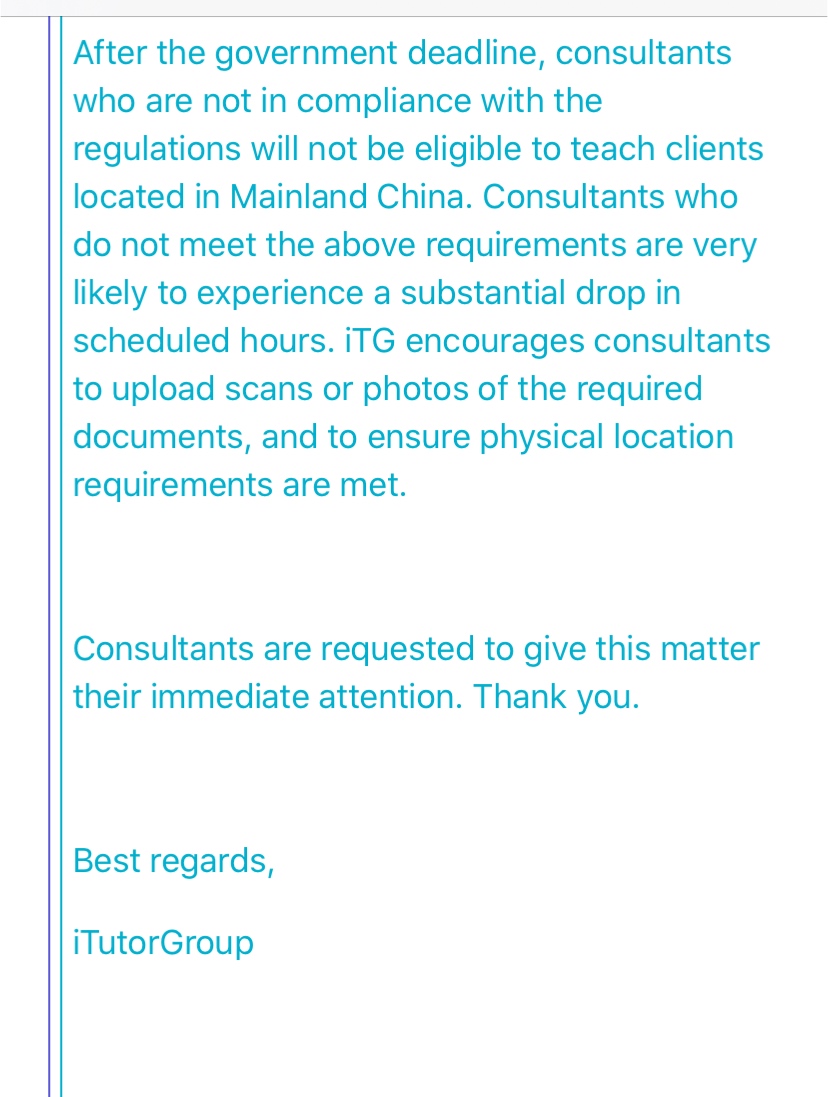I moved to Taipei to enjoy the city, not to be stuck in my apartment all day
A few weeks ago, I began my first face-to-face foundational TESOL training course since COVID hit Taiwan. We'd gone online at some point and were struggling to resume in-person learning.
It had truly been so long that in the fog of the late pandemic I no longer remember when it happened, only that trying to teach that course online presented a host of problems. I couldn't really demonstrate various in-person interaction patterns, for instance. Nor could we discuss classroom management components such as boardwork and layout in an impactful way. A practicum (demo) is a vital component of this course, but it's harder for inexperienced teachers to lead interactive demos online. Everything takes longer online, too, and it was a challenge to cover the course requirements.
When we finally opened a face-to-face course, on day three someone tested positive for COVID. Within a week, about half the class was infected, and I was teaching face-to-face with four students and a computer running an online meeting with the other three. I then tested positive, and it was back online for all of us.
My heart sank when I realized how it would go: back to my home office, back behind a screen. Yes, it's an incredible privilege to have a spare room for a home office at all, but it is draining to be stuck in there for days on end, without many chances to go out while Brendan left everyday for in-person work.
Gently put, it's a cloister. More critically, it's a prison.
While I've transitioned back somewhat to in-person teaching and teacher training, enough of it remains online that my latest stint at home prompted me to reflect anew on teaching and teacher training as a profession now that someone like me is just as likely to be working at a screen as in a room with their students or trainees.
To be blunt, I don't like teaching or teacher training online. At all. I've become accustomed to it, and of course I can do it. And yet, while some say online teaching brings people together -- it's possible to take classes you never dreamed possible if teachers and students can meet remotely -- I feel as though the screen divides me from the learners. It causes a rupture, a block.
Everything takes longer, everything requires more planning. It's more difficult to develop rapport, especially when I have to put my foot down about cameras being left on if at all possible. Some never do, and there are situations where I can't (or shouldn't) force the issue. Imagine having students whose faces you've never seen, whom you'd never recognize on the street. I didn't become a teacher to interact with black squares all day, and I find it very hard to develop rapport this way.
Even with cameras on, I find it difficult to build the same connections with learners and trainees. To "make eye contact" I have to look at the camera, not the face on the screen. It's the same for the learner. I can toggle between these and create a simulacrum of actual, in-person, we-see-each-other eye contact, but it's not actually the same. The effect is ineffable, but definitely there, and entirely negative.
One-on-one classes aren't so bad, as you only have to do this back-and-forth with one face. The effect is deeply felt in groups, however, especially if one of us is presenting.
I had an office job in the US all those years ago; lots of screen time, very little face-to-face contact. I hated it, and became a teacher because this is exactly what I don't want. It's kind of like attending meetings all day (something which can be tiring if you're working remotely), and you are the coordinator and host of every single meeting. I'm good at this in person. Online? Honestly, not so much -- because I don't want to be at a computer, period.
Pre-pandemic, my various jobs required me to jet all over Taipei and beyond for work. I explored parts of the city I'd rarely or never set foot in otherwise.
Again, I realize this is a privilege. I understand that most people take the same route to the same office every day if they’re not working remotely, so “going in” isn’t particularly desirable. I get bored easily with routine, which is why I chose a career path through which I’d frequently find myself in different places. It got me out of the house, and I was able to see different parts of the city. My schedule changed often enough that there was always something at least a little new in this; it never got monotonous and I didn’t resent the extra time it took. I like to be on the move.
You know what I don’t like? Being stuck at home most of the day, unable to leave my neighborhood or even my apartment, sometimes for entire days. If I have a training course in the morning, then an afternoon and evening class, the furthest I’m likely to go that day is the nearby 7-11. If I’m really lucky I might get to go to the ‘everything store’ down the street!
I hate this. Plenty of people like working from home as it frees them from tiring commutes and allows them to be comfortable in their work setup. That’s great for them. It’s not for me. Mental health walks are uninspiring; I’m not good at walking with no destination. I’ve found myself making up reasons to go outside, which usually involve coffee or shopping, but they rarely take me anywhere new. No new cafes, little local restaurants or novel bus routes. No “hey there’s an Indian restaurant near Sanmin Road!”
There is nothing worse for an extrovert than being at home all day, usually alone as Brendan still teaches face-to-face, and not feeling the rapport bump from work, either.
I have had more in-person opportunities recently, having started a new part-time gig that I'm enjoying quite a bit and pays very well. It's partly face-to-face, and that helps -- but they also underscore that being mostly online is a problem.
In fact, let's talk a bit about boredom and big career questions.
It’s easy to say I’m transitioning from teaching to more teacher training because it pays much better (to be clear, it does), but I’m also motivated by the level of challenge. It seems as though it should be easy to coast at the sort of work I’ve been doing forever, but I tend to get distracted and stuck if I do the same thing for too long. I know stagnation affects my performance, so it’s time to reach. This means more work overall, but that's the fundamental truth of what it means to seek challenge.
If all of this sounds vague, it’s because I don’t want to give too many specifics about work for all the obvious reasons. Besides, I genuinely like the people I work with. Most of them run their businesses well, or at least well enough that I don’t walk. I don’t want to hop on my blog to gossip about good people.
Yet internally, I’ve been fighting…something. Distractedness? Demotivation? The delicate balance of work with my sub-optimal health? It could be any or all of these, and
one of the leading causes is the pivot to online teaching.
Of course it's not the only reason. Working in Taiwan can be tough in certain ways: raises are rare, there’s no such thing as a paid holiday, it’s a battle just to get employers to do basic things like contribute to labor insurance and pension. In general I do not feel that teaching in Taiwan pays enough at the higher levels of ability and experience; I stay in Taiwan because I love Taiwan, but the honest truth is I could make more money in just about any other Asian country.
Teacher training is a lot fairer in terms of compensation, and I won't lie: that's another reason why I gravitate towards it.
Every day I fight the notion that I’m good at my job simply because I’m a white native speaker. I think I am indeed good at my job, but that’s not the reason!
None of those are the core of it, though. I’m used to the lack of benefits, and beyond wanting to be comfortable I’m not particularly motivated by money. (I'm only somewhat money-driven.) I didn't start to feel this distractedness until work mostly went online. Period, end of story, that's it: everything else is manageable but remote teaching is not what I want, and never will be.
What's worse, because I don't actually want to be teaching online, I'm not as good at it. I'm less careful; teacher talking time shoots up; interactions don't vary as much as would be optimal; I'm less innovative. I'm less motivated online, full stop.
Online teacher training is even harder to pull off, but at least the level of challenge keeps it interesting.
Just to clarify, I’ve been forthright about this at work. Nobody reading this who knows me in real life would be surprised to hear it. It doesn’t really change the current situation, though — how could it?
There are benefits to being online, however, that almost negate this (almost). Collaborative documents, chat boxes, interactive whiteboards: all things made possible by an online interface. It would be harder to schedule my own Taiwanese lessons if we met face-to-face, and I will probably start Armenian lessons online in the near future -- something that would have been impossible not that long ago. Trainees who can't attend my sessions in person are able to log in for the online ones; they get a benefit they wouldn't have been able to access in the Before Times.
That said, all this new technology never runs quite as smoothly as it should to be considered a true advantage. There’s always that one learner who can’t figure out how to access the materials on Google Docs (or can’t access it at all if they’re in China or have some sort of work-related block to that function). Zoom’s interactive whiteboard is clumsy and annoying. My noise-canceling computer is fantastic when my cleaner is vacuuming, but not great when we need to use audio recordings, as they don’t tend to play clearly. Getting everyone to mute themselves to listen on their own takes — you guessed it! — more time.
Teaching online doesn’t even come with the only real benefit of remote work, which is freedom to travel and do your work elsewhere for awhile. I can’t go to a cafe — it’s a class! I suppose I could head south or east, but I can’t, say, fly to Europe or the US and work from there unless I want to keep some very weird hours. I’ve tried (ask me about 6am classes at my sister's old apartment in Hoboken someday) and it never really works out.
It's caused me to ask some Big Career Questions. I love teacher training and don't want to give that up, but if I took on less teaching work and picked up, say, an editing or materials development job, at least I could go to a cafe for a change of scenery instead of spending the entire day in my little office cloister. I won't turn down online teacher training because I enjoy it too much, but I have considered refusing online language teaching to do this. I haven't pulled the plug on that yet, but we'll see.
There’s no clear solution here; this is just my life now. If I had a different sort of job where I was desperate to escape the fluorescent horror and greige cubicle walls of an office, I’d probably welcome remote work. I became a teacher in part to avoid that! One of the reasons I’ve sought out more work is for those face-to-face hours; it will make the online portions of my job more bearable. At least I’ll have more chances to go somewhere!








